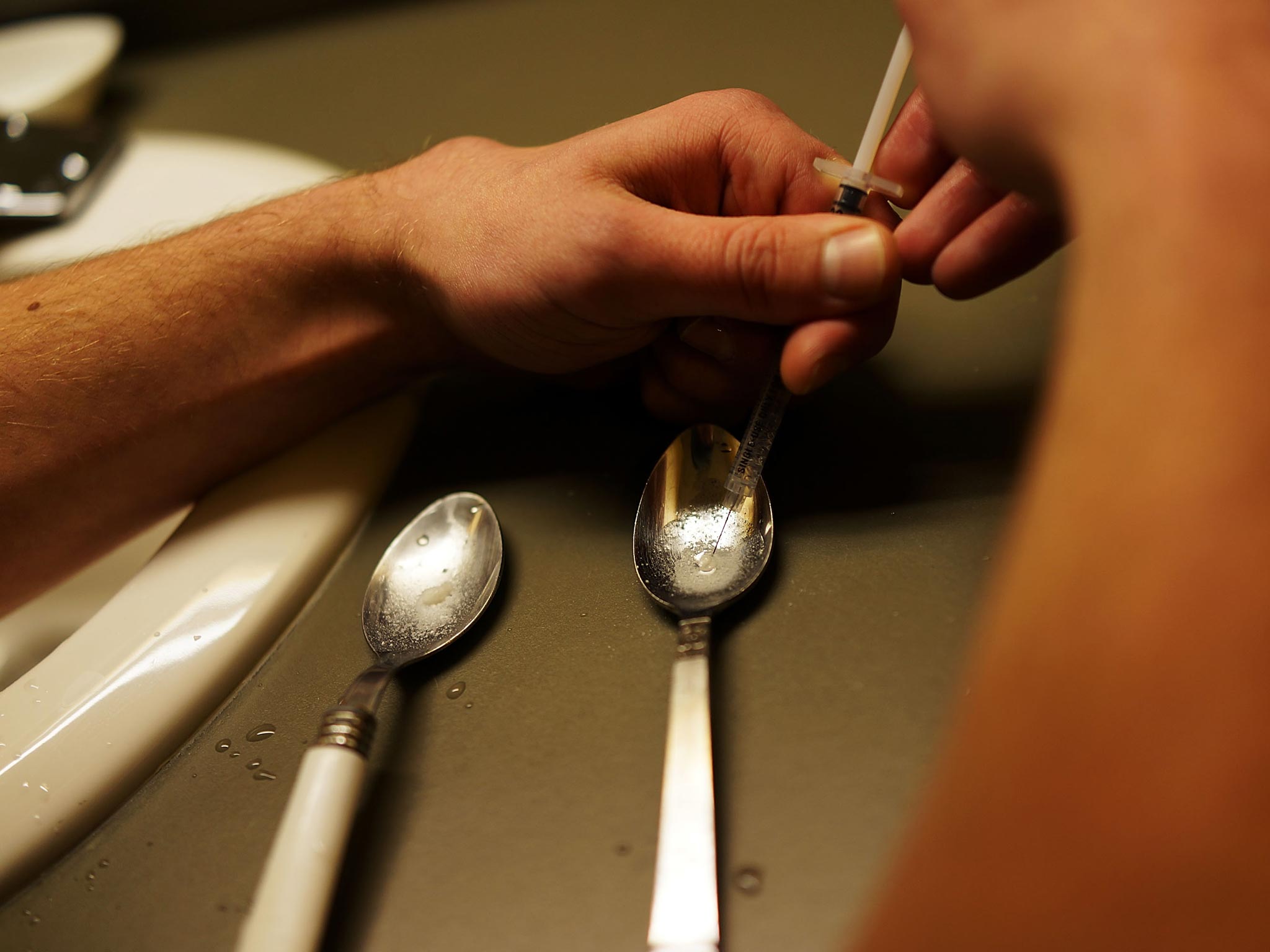Drug-related deaths at highest levels since records began
Figures have almost tripled since records first began being recorded in 1993

Your support helps us to tell the story
From reproductive rights to climate change to Big Tech, The Independent is on the ground when the story is developing. Whether it's investigating the financials of Elon Musk's pro-Trump PAC or producing our latest documentary, 'The A Word', which shines a light on the American women fighting for reproductive rights, we know how important it is to parse out the facts from the messaging.
At such a critical moment in US history, we need reporters on the ground. Your donation allows us to keep sending journalists to speak to both sides of the story.
The Independent is trusted by Americans across the entire political spectrum. And unlike many other quality news outlets, we choose not to lock Americans out of our reporting and analysis with paywalls. We believe quality journalism should be available to everyone, paid for by those who can afford it.
Your support makes all the difference.Drug deaths are at the highest levels since records began, data has suggested.
The number of people dying from drugs misuse has soared to 2,250 per year in 2014, almost triple the levels found when records began in 1993. The numbers have been increasing since then, with continual upward spikes year-on-year since a momentary drop in 2012.
Of the deaths, the overwhelming majority died from accidental poisoning with the substances, followed by intentional poisoning and mental or behavioural disorders caused by using drugs.
Drugs-related deaths, by cause
Men are considerably more likely than women to die in this way, accounting for 72 per cent of all drug-related deaths, while women make up just 28 per cent.
Drugs-related deaths, by gender
The figures have been released by the Health and Social Care Information Centre as part of research exploring patterns in drugs misuse.
Ian Hamilton, a lecturer in mental health at the University of York specialising in the study of problematic drug and alcohol use, told The Independent that the rise may be due to lessening support for addicts, incurred by public health funding cuts. He said: “In part the rise in deaths is likely to be the legacy of substantial disinvestment in drug treatment following the £200 million pound cuts to the Public Health budget.
"This has resulted in de-professionalising the work force as providers compete with each other to provide the 'best value' services when tendering.”
He added the gender divide may be due to differing social roles performed by men and women, including responsibilities for childcare: “The gender difference is interesting and has been a consistent feature in those accessing treatment as well as those unfortunately losing their lives. I suspect not having direct responsibility for children could be a factor, as for women this is both a protective factor against risky drug use and also services are more likely to respond to mothers in terms of their statutory duty to protect children.”
The concerning figures fuel concerns that the government is fighting a losing battle in the war on drugs. In May of this year, controversial new legislation banning ‘legal highs’ came into force, amid concerns they could be as harmful as banned substances. The legislation was criticised for being too broad and unrealistic. However, the government has said it is necessary to protect people from serious addiction.
It is estimated that one in 3 adults has taken an illicit drug at some point in their life, with 8.9 per cent having done so in the last year and 5.2 per cent having done so in the last month.
Join our commenting forum
Join thought-provoking conversations, follow other Independent readers and see their replies
Comments